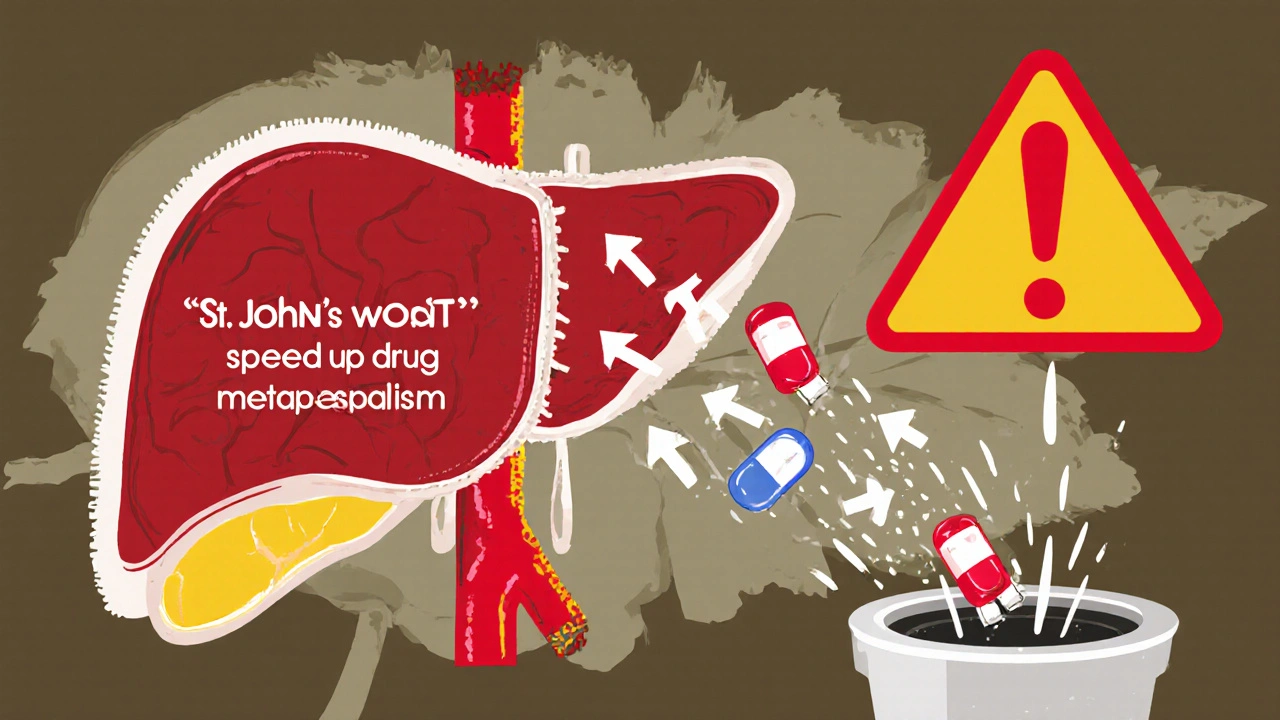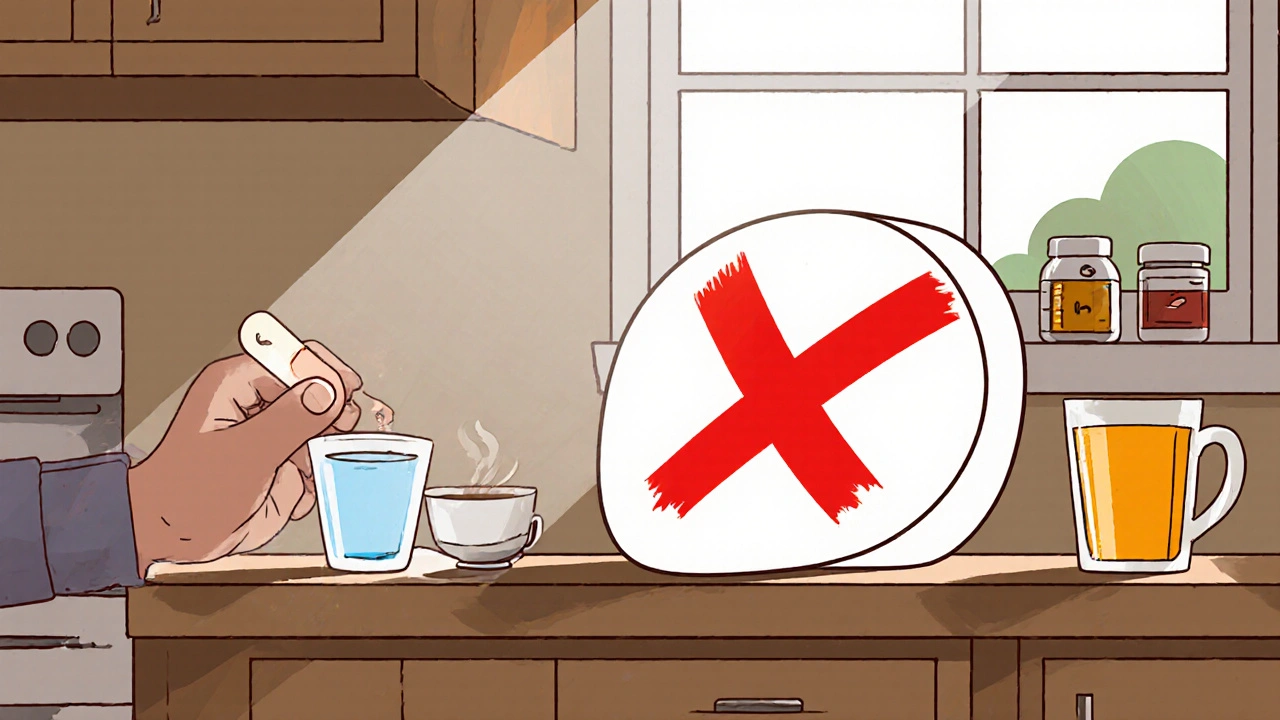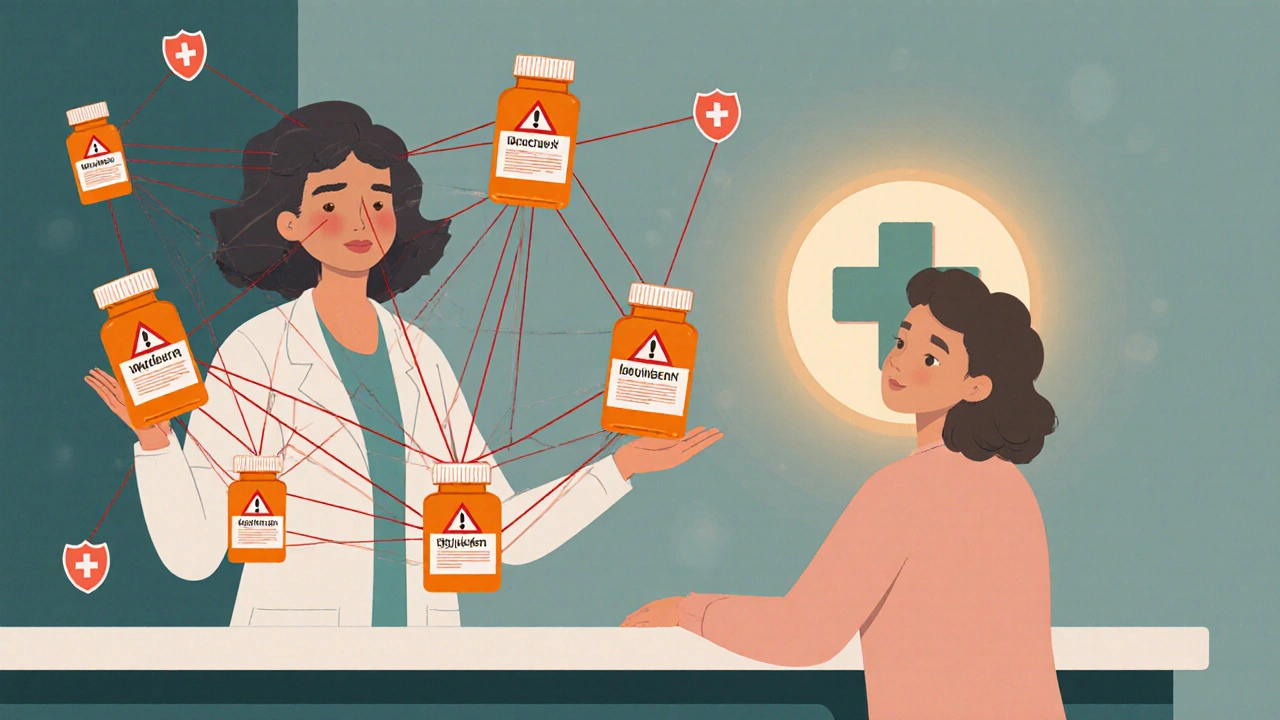Drug Interactions – Why They Matter & How to Stay Safe
If you’ve ever taken two pills at once and wondered if that was a good idea, you’re not alone. A drug interaction happens when one medication changes how another works. The result can be anything from a harmless mild headache to a serious health risk. Knowing the basics can save you time, money, and a trip to the emergency room.
Common Interaction Triggers
Most people think only prescription drugs cause problems, but over‑the‑counter meds, vitamins, and herbal supplements join the mix too. For example, ibuprofen (a common pain reliever) can irritate your stomach if you’re already on a blood thinner like warfarin. Vitamin D supplements might boost calcium levels so much that they interfere with certain heart medicines.
Another frequent culprit is caffeine. Drinking coffee while taking a beta‑blocker such as atenolol can make the drug feel less effective, leaving you jittery or causing a faster heartbeat. Even simple foods matter—grapefruit juice can raise levels of some cholesterol pills, making them work too hard.
Practical Steps to Avoid Bad Mixes
First, keep a running list of everything you take: prescription meds, OTC drugs, vitamins, and herbal products. When you pick up a new medication, ask your pharmacist or doctor how it might interact with what’s already on your list.
Second, read the label. Most drug boxes include a “Interactions” section that flags common problems. If the warning sounds confusing, search the drug name plus "interaction" online or use a reputable app.
Third, timing can help. Some meds only interact when taken together, not if you space them out by a few hours. For instance, taking levothyroxine (a thyroid pill) two hours before breakfast avoids absorption issues caused by calcium supplements.
Finally, watch for symptoms. New dizziness, unusual bruising, or sudden heart palpitations after starting a combo could be a red flag. If anything feels off, call your healthcare provider right away.
On our site you’ll find detailed articles on specific interactions—like how Zoloft (sertraline) mixes with certain antibiotics, or why vitamin D and calcium need careful timing. Each guide breaks down the science in plain language and offers quick checklists so you can act fast.
Staying ahead of drug interactions isn’t about being paranoid; it’s about being informed. A few minutes of research today can keep you healthy tomorrow. Keep this page bookmarked, explore our related posts, and feel confident that you’re managing your meds the smart way.

Herbal Supplements and Drug Interactions: What You Need to Know for Safety
Herbal supplements can dangerously interact with prescription drugs, reducing effectiveness or causing toxicity. St. John’s wort, ginkgo, garlic, and danshen pose serious risks. Learn which herbs to avoid and how to talk to your doctor.
November 27 2025
Magnesium Supplements and Osteoporosis Medications: Timing Rules
Magnesium supplements can block osteoporosis medications like Fosamax and Actonel, reducing their effectiveness by up to 60%. Follow a strict 2-hour timing rule to protect your bones and prevent fractures.
November 17 2025
Using One Pharmacy for Safety: How Centralizing Prescriptions Reduces Drug Interactions
Using one pharmacy for all your prescriptions reduces dangerous drug interactions, prevents duplicate medications, and gives you consistent support from a pharmacist who knows your full health history. It’s a simple step with major safety benefits.
October 30 2025